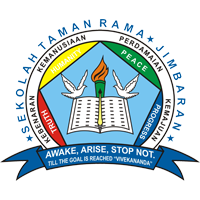Quality Education – Moral Values
Our School Philosophy
- Morals first, attention is paid to character building and the behaviour of the child.
- The education methodology adopted by the school is oriented on the lines of Non – Violence (Ahimsa – Anti Kekerasan). Non Violence in thought, speech and deed.
- Focus should be on appreciating the less significant but good things that the children do or can do.
- Corporal punishment is not allowed at all. As a mode of punishment, students are sent to the school meditation room to contemplate their actions. The student is asked to contemplate in the meditation room of the school or asked to read a Holy book at home and reflect about the mistake he / she made and promise not to repeat it.
- Mahatma Gandhi believed that school should be a community centre and foster a spirit of social service. Attention of the students is always directed to the suffering of the less privileged. To create social awakening, children are taken to visit orphanages – not to give charity but companionship and to stage cultural performances. They interact with less privileged children.
- For social services, parents are involved, funds are raised and an opportunity made for students to go to places where the victims are and to make a charitable contribution.
- To develop personalities, students are invited to take part in co-curricular activities. They are encouraged to meet officials, ministers and visit factories. Such activities are organized by the students themselves.
- 8. When a student speaks the truth and admits to having committed a wrong act, he is not punished. The student decides the self punishment to be imposed on himself on the lines mentioned previously (fasting).
- Taman Rama School is open to all religions. The school does not influence the religion of a child. Religion is taught by the respective teachers of the following religions: Islam, Christianity (Catholic and Protestant), Hinduism, Buddhism and Kong Hu Chu. In addition, morals are taught to develop universal human values or development through stories from the lives of great men and women all over the world.
- The five principles of Pancasila are applied, not only as a slogan but in practice too.
- To build one’s belief in God, prayer is held during the morning assembly before they go to their respective classrooms. A thought for the week and news headlines for the day are read aloud in the morning assembly.









